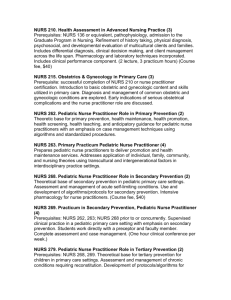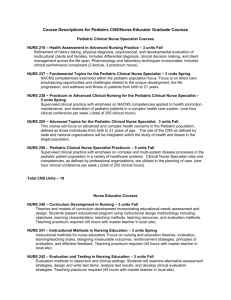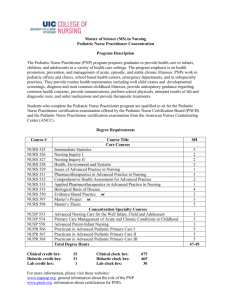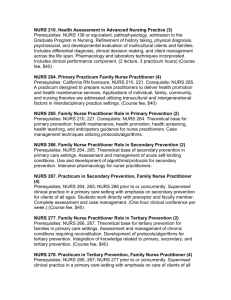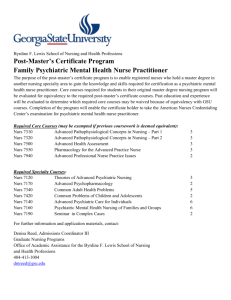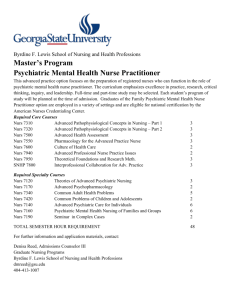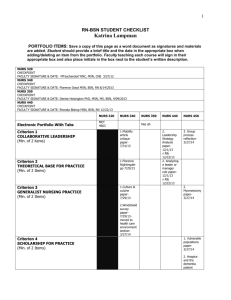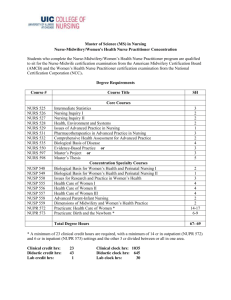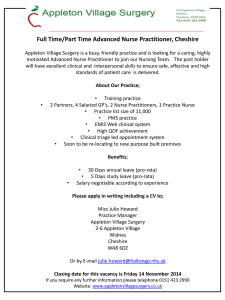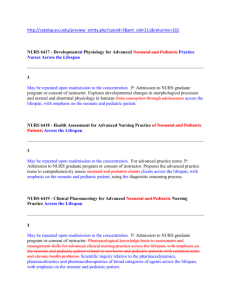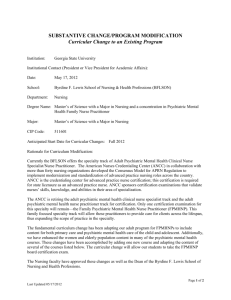NURS 210
advertisement
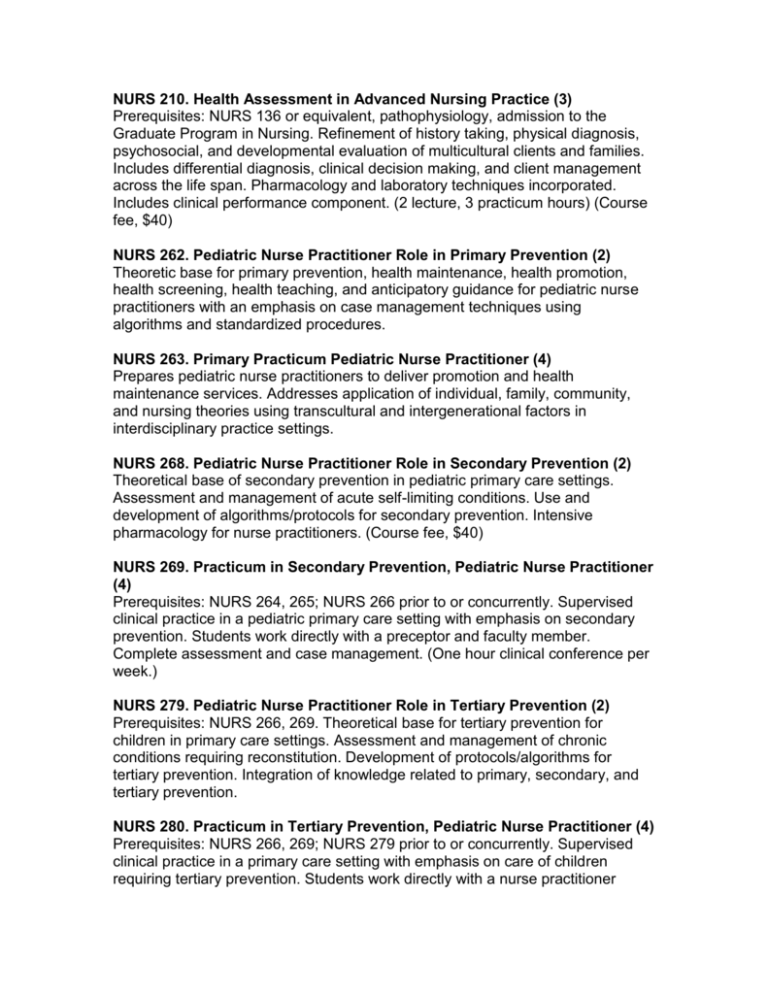
NURS 210. Health Assessment in Advanced Nursing Practice (3) Prerequisites: NURS 136 or equivalent, pathophysiology, admission to the Graduate Program in Nursing. Refinement of history taking, physical diagnosis, psychosocial, and developmental evaluation of multicultural clients and families. Includes differential diagnosis, clinical decision making, and client management across the life span. Pharmacology and laboratory techniques incorporated. Includes clinical performance component. (2 lecture, 3 practicum hours) (Course fee, $40) NURS 262. Pediatric Nurse Practitioner Role in Primary Prevention (2) Theoretic base for primary prevention, health maintenance, health promotion, health screening, health teaching, and anticipatory guidance for pediatric nurse practitioners with an emphasis on case management techniques using algorithms and standardized procedures. NURS 263. Primary Practicum Pediatric Nurse Practitioner (4) Prepares pediatric nurse practitioners to deliver promotion and health maintenance services. Addresses application of individual, family, community, and nursing theories using transcultural and intergenerational factors in interdisciplinary practice settings. NURS 268. Pediatric Nurse Practitioner Role in Secondary Prevention (2) Theoretical base of secondary prevention in pediatric primary care settings. Assessment and management of acute self-limiting conditions. Use and development of algorithms/protocols for secondary prevention. Intensive pharmacology for nurse practitioners. (Course fee, $40) NURS 269. Practicum in Secondary Prevention, Pediatric Nurse Practitioner (4) Prerequisites: NURS 264, 265; NURS 266 prior to or concurrently. Supervised clinical practice in a pediatric primary care setting with emphasis on secondary prevention. Students work directly with a preceptor and faculty member. Complete assessment and case management. (One hour clinical conference per week.) NURS 279. Pediatric Nurse Practitioner Role in Tertiary Prevention (2) Prerequisites: NURS 266, 269. Theoretical base for tertiary prevention for children in primary care settings. Assessment and management of chronic conditions requiring reconstitution. Development of protocols/algorithms for tertiary prevention. Integration of knowledge related to primary, secondary, and tertiary prevention. NURS 280. Practicum in Tertiary Prevention, Pediatric Nurse Practitioner (4) Prerequisites: NURS 266, 269; NURS 279 prior to or concurrently. Supervised clinical practice in a primary care setting with emphasis on care of children requiring tertiary prevention. Students work directly with a nurse practitioner and/or physician preceptor in a primary care setting. (One hour clinical conference per week.)
